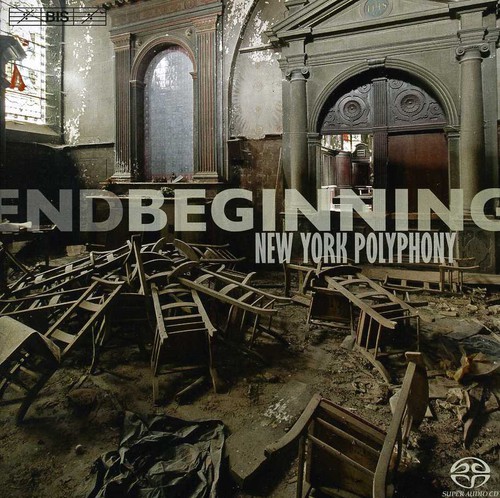'My end is my beginning, and my beginning my end' - with those words the four members of New York Polyphony end a programme which explores the themes of grief, loss and mortality. Apart from the closing paraphrase by Jackson Hill (b.1942) on Guillaume de Machaut's famous 14th century rondeau Ma fin... and two examples of plainsong, all works included on endBeginning, the ensemble's first disc on BIS, were composed by masters of the Franco-Flemish school of polyphony active in the first half of the 16th century. The music was partly used liturgically, for instance Brumel's Mass for the Dead, which incorporates the first known polyphonic setting of the text Dies irae, 'Day of Wrath' as its extensive centre piece. Similarly the Lamentations by Crecquillon, a setting which is possibly appearing on disc for the first time, would have been used in churches during Holy Week, with the destruction of Jerusalem as mourned by the prophet Jeremiah standing as a symbol of the Passion of Christ. The two Gregorian chants Libera me and In paradisum both form part of the Roman Catholic burial service, the first a prayer for the soul's delivery from eternal death and the second an evocation of the hereafter. Of a more subjective nature, the two texts Absalon fili mi ('Absalom, my son') and Tristitia obsedit me - Infelix ego ('Sadness has besieged me - Alas, wretch that I am') have moved their respective composers to settings of rare intensity. Formed in 2006, New York Polyphony is establishing a reputation as an exceptionally fine vocal chamber ensemble, and has been praised for a 'rich, natural sound that's larger and more complex than the sum of its parts' |


